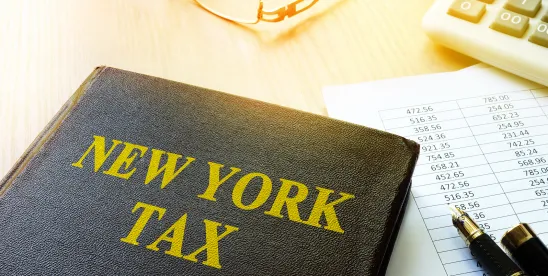The New York State Supreme Court, which is a trial court, ruled that New York’s regulation that attempts to limit Public Law (“P.L.”) 86-272 in New York cannot operate retroactively. The court held that the regulation is not pre-empted by P.L. 86-272. American Catalog Mailers Association v. Department of Taxation & Finance, Index No. 903320-24 (NY Sup. Ct. Apr. 28, 2025).
P.L. 86-272 is a U.S. federal law that shields a seller of tangible personal property from imposition of a state’s net-income based tax when the company solicits orders in the state, conducts activities in the state that are ancillary to solicitation, or conducts de minimis (very small) amounts of activities in the state. Wisconsin Dep’t of Revenue v. Wm. Wrigley Jr. Co., 505 U.S. 214 (1992) (analyzing 15 U.S.C. 381 to 384 also known as P.L. 86-272). The law dates back to 1959 and, since its enactment by the U.S. Congress, it has been attacked by states—initially (and unsuccessfully) challenging Congress’ authority to enact the shield law and later (with mixed success) challenging the operation of the shield. The shield protects a minimum level of company activity (having in-state company representatives who solicit orders) and third-party selling activity (third parties are allowed to conduct selling activities on a company’s behalf). 15 U.S.C. 381(a) and (c). Congress enacted P.L. 86-272 because solicitation activity had been found by the Louisiana Supreme Court in 1958 to create a taxable state-nexus and, in 1959, the U.S. Supreme Court declined to hear appeals from the decisions, which together upset settled expectations in the business community.
In the latest round of state attacks on P.L. 86-272, New York State promulgated regulations in December 2023 that attempt to reduce the federal shield for New York State purposes back to January 1, 2015 (the date of New York’s statutory corporation tax reform) when companies use modern technology to interact with customers such as by: assisting customers via “chat” features on a corporation’s website; accepting a customer’s application for a credit card via its website; allowing New York residents to apply for non-sales jobs via its website; using Internet “cookies” to gather customer information via its website; remotely fixing or upgrading via the Internet previously purchased products; selling extended warranty plans via its website; contracting with a marketplace provider that facilitates sales via the provider’s online marketplace; or selling tangible personal property via the Internet and contracting with customers to stream videos or music to electronic devices for a fee. 20 NYCRR 1-2.10[i].
The American Catalog Mailers Association (“ACMA”) challenged the regulations by seeking a flat-out declaration that the 2023 regulations are preempted by federal law and improperly retroactive to 2015. The New York court found that P.L. 86-272 does not prohibit the State from identifying and regulating which Internet activities are construed by New York to constitute more than protected activity and ruled that there is no conflict between the regulations and P.L. 86-272. However, the court struck down the retroactive period. It noted that “‘for centuries our law has harbored a singular distrust of retroactive statutes’” and found that the ACMA’s members were “not forewarned of this retroactive application,” “had no opportunity to ‘alter their behavior in anticipation of the impact of [retroactive application of the challenged regulations]’[,]” and the nearly nine-year period of retroactivity “is excessive[.]” The ACMA New York case and the issues presented by the regulations are in their early stages. [1]
Possibly riding to somewhat of a rescue, federal legislators introduced bills in the House and Senate to amend P.L. 86-272 with respect to activities that are ancillary to solicitation. Such proposed changes may become part of the federal tax package that is currently in the reconciliation process. Stay tuned for more developments regarding P.L. 86-272!
[1] On May 13, 2025, the ACMA appealed the Decision and Order of the court to the Appellate Division, Third Department.



 />i
/>i

